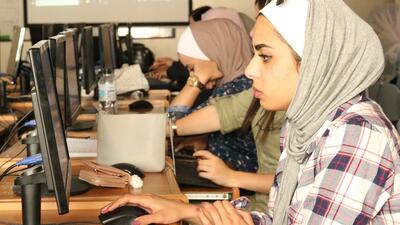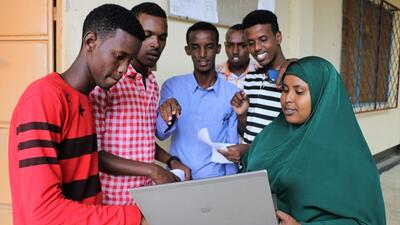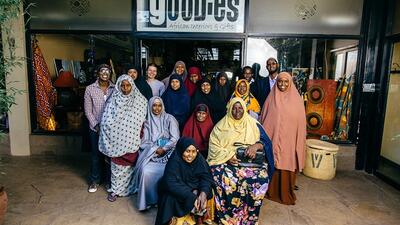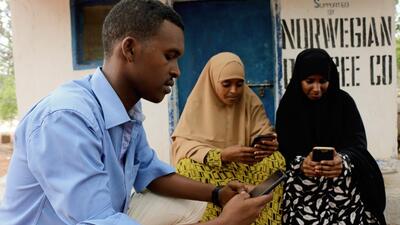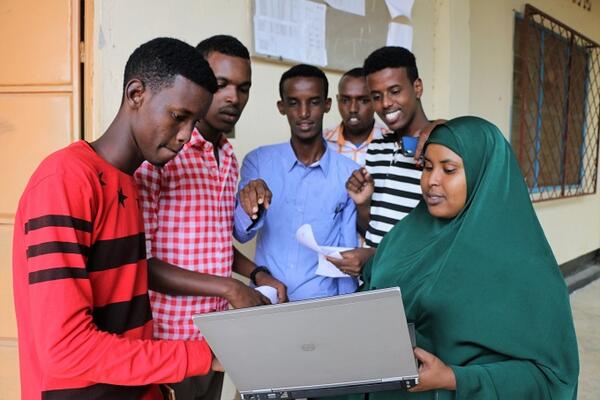
Digital work opportunities from around the world in Dadaab
Organize data in a spreadsheet for a startup in San Diego? Translate English to Swahili for app developers in Nairobi? Create a Somali-language voiceover for a company in Florida? Invite your social media friends to like a business’s Facebook page?
These are all tasks posted every day by companies around the world on freelancing websites like Upwork, Guru and Freelancers. Successful applicants can earn anything from a few dollars to a few hundred, depending on the job. And they can do so from anywhere with a decent internet connection – including from Dadaab, Kenya, home to a large camp for nearly a quarter-million refugees from neighbouring Somalia.
As part of the International Trade Centre’s (ITC) Refugee Employment & Skills Initiative (RESI), Somali refugees and local Kenyans in Dadaab have received training in digital skills with an eye to obtaining online freelance employment. Following a three-week course by Samasource Digital Basics, a San Francisco-based digital literacy non-profit, the trainees are actively competing for freelance jobs online.
Equipping Somali refugees and Kenyans with the right skills
The course, which is coordinated by the Norwegian Refugee Council, equips participants with skills in internet research and Microsoft Office software. Just as importantly, the Samasource Digital Basics team introduced participants to different online freelancing websites, guiding them on creating profiles, assisting them in getting their accounts approved, and teaching them how to avoid pitfalls such as hackers and fake jobs.
The seventy graduates from the course thus far are made up of a mix of host community and refugee candidates, of whom about one in five are women. Most of them now have approved profiles on popular freelance work platforms such as Guru.com and Upwork.
Encouraging ‘hustle’
The ITC RESI project model seeks to encourage people to ‘hustle’ in search of income opportunities and financial independence.
Unlike some traditional aid project training models, participants were offered no incentives apart from some transport assistance to attend the Samasource Digital Basics classes. As such, the high attendance rates were a marker of success.
“I really appreciate the course as the world of today is technology,” said Abdishukri, one of the participants. “Compared to a traditional job, you can be at home getting income. This is amazing.”
Graduates from the programme are now actively bidding for jobs. Seven recently received interview invitations from clients on Upwork. One of them, Salim, translated English to Swahili and Somali for an app, receiving positive feedback on his work. “Looking for a job on Upwork is hard, but I never quit”, he said. Salim has had other interviews and hopes to secure additional work. “The course was very informative, and it really educated me about the opportunity of freelancing which I didn’t know much about before.”
Programme graduates and trainers communicate through a WhatsApp group to share potential jobs and updates on their applications and interviews. NRC staff and an experienced freelancer who is mentoring participants share relevant information, encourage team spirit and respond to queries.
The International Trade Centre’s Refugee Employment & Skills Initiative would not be possible without the support of its partner, the Norwegian Refugee Council and the Ministry of Foreign Affairs of the Governments of the Netherlands.





